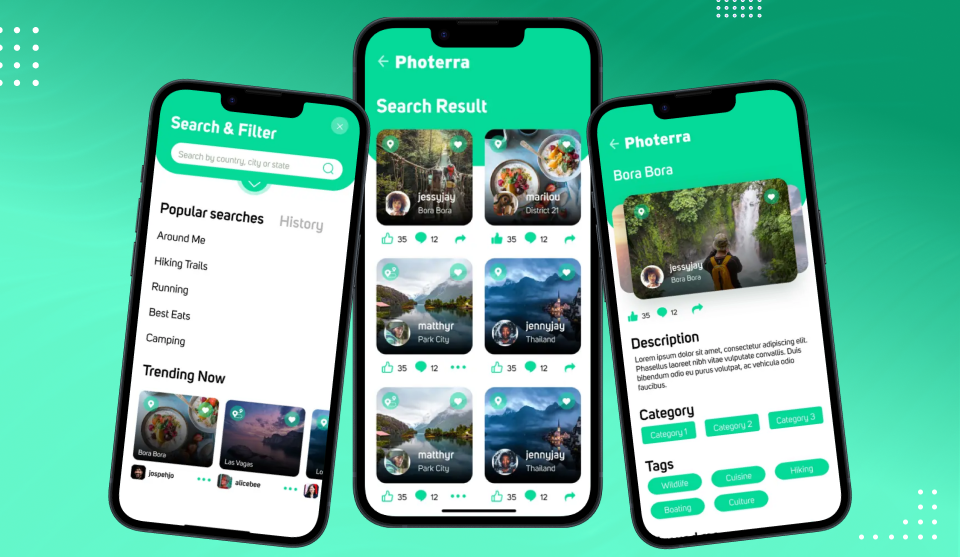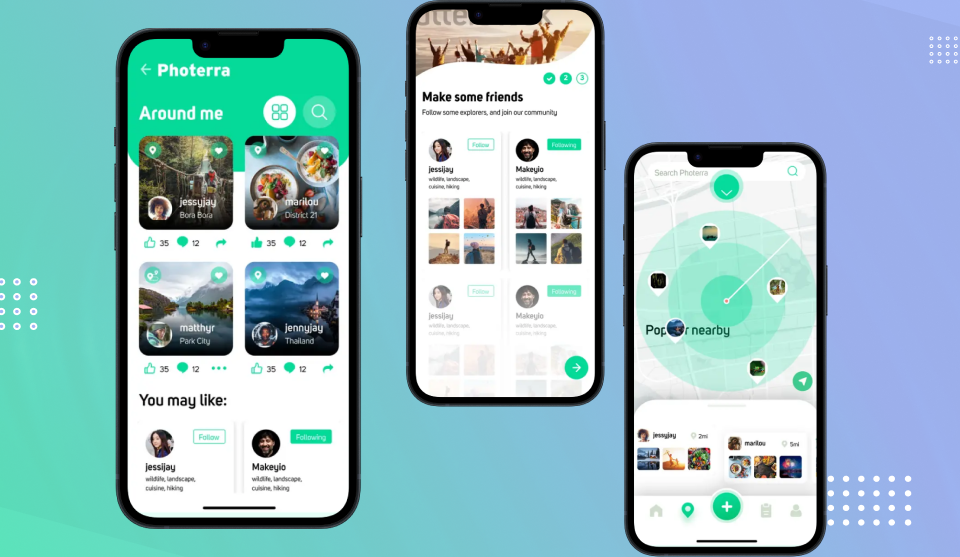React Native development has gained immense popularity in recent years, allowing developers to build mobile applications using a single codebase for both iOS and Android. Many businesses seek reliable React Native development services to create cost-effective and high-performance applications. Choosing the right React Native development company can significantly impact the success of an app.
With mobile app usage growing exponentially, businesses need efficient solutions to cater to both iOS and Android users. React Native for iOS and Android offers a streamlined approach, making it a preferred framework for many startups and enterprises. As more companies recognize the benefits of cross-platform app development, React Native development continues to evolve with new features, tools, and trends shaping its future.
Pros of React Native Development
-
Cross-Platform Compatibility
One of the key benefits of React Native is its ability to create apps that run smoothly on both Android and iOS, cutting down on development time and costs. Developers write a single codebase, which enhances efficiency and ensures uniformity across platforms—making it ideal for cross-platform app development.
-
Hot Reloading
Hot reloading lets developers see code changes instantly without needing to rebuild the entire app, boosting productivity. This feature helps streamline debugging, enabling rapid testing and iterative development—key advantages in any React Native vs native mobile app development comparison.
-
Large Community and Support

Meta (formerly known as Facebook) backs React Native, and its vast developer community ensures continuous enhancements and regular updates. A strong community means access to extensive documentation, open-source contributions, and quick solutions to common challenges in React Native development.
-
Reusable Components
Reusing code accelerates the development process and simplifies application maintenance. By utilizing pre-built components, React Native development services can accelerate project timelines, reduce redundancy, and maintain consistency across the application.
-
Third-Party Plugin Support
With a vast range of third-party libraries, a React Native development company can integrate advanced features without building them from scratch. This enables businesses to enhance their apps with features like maps, payment gateways, analytics tools, and other integrations.
-
Cost-Effective Development
Since React Native lets developers create apps for multiple platforms with a single codebase, it helps cut down costs significantly. Companies no longer need separate teams for Android and iOS, leading to optimized budget allocation—one of the top advantages of React Native.
-
Faster Time-to-Market
React Native facilitates faster development cycles, making it ideal for businesses looking to launch their apps quickly. Companies leveraging React Native development services can reduce timelines and achieve faster user acquisition.
Also Read: https://www.siddhiinfosoft.com/blog/yogasan-yoga-studio-wordpress-theme/
Cons of React Native Development
-
Performance Limitations
Although React Native is optimized for mobile, it may not perform as quickly as fully native apps, particularly for graphics-heavy applications. Performance-sensitive apps—like gaming or AR/VR—might still require native development for optimal results. This is one of the significant limitations of React Native that developers should be aware of when working with it.
-
Dependency on Native Modules
Certain complex features still need native development, which can add to project complexity. If an app demands extensive native modules, developers may have to write platform-specific code, partially negating the advantages of React Native.
-
Large App Size
React Native apps generally come with bigger file sizes than native apps because they bundle extra libraries. This could impact performance in regions with limited bandwidth or storage.
-
Compatibility Issues
Occasionally, React Native updates can cause compatibility issues with third-party libraries. Keeping dependencies updated and compatible is critical to how to optimize performance in React Native apps.
React Native for Web Development
While mainly built for mobile platforms, React Native can also be leveraged for web development. React Native Web allows developers to extend a mobile codebase to web applications, offering greater versatility. A skilled React Native development company can leverage this to maximize efficiency and reduce development effort.
By using React Native for both mobile and web, businesses can deliver a consistent brand experience across devices. This unified approach minimizes work and is highly valuable for organizations investing in cross-platform app development.
Future Trends in React Native Development
- Enhanced Performance Optimization – Continuous updates aim to make apps faster, lighter, and more responsive.
- Expanded Web and Desktop Support – Thanks to React Native for Windows and macOS, cross-platform capabilities now go beyond mobile devices.
- AI and Machine Learning Integration – Smarter, data-driven features will become common in React Native development services.
- Improved Developer Tools – Debugging solutions such as Flipper help streamline and improve the development process.
- Integration with IoT and Wearables – Broader compatibility with smart devices for seamless cross-device experiences.
- Server-Side Rendering (SSR) Improvements – Better performance, SEO, and load times for certain app types.
- AR and VR Capabilities – More immersive apps in retail, gaming, and virtual meetings—pushing the limits of React Native development.
Best Practices for React Native Development
To maximize the benefits of React Native and reduce its limitations:
- Use functional components with hooks for better performance and cleaner code.
- Optimize app performance by removing unused dependencies and using native modules where necessary.
- Keep third-party libraries updated to maintain compatibility.
- Follow UI/UX guidelines for a native-like experience.
- Use code splitting to minimize initial loading time.
- Use TypeScript to prevent runtime errors and improve maintainability.
- Test on multiple devices and OS versions to ensure React Native for iOS and Android compatibility.

Conclusion
Considering the pros and cons of React Native, it’s evident that the framework offers a strong option for businesses aiming to create scalable, efficient, and budget-friendly mobile apps. For anyone wondering, “Is React Native a good choice for mobile app development in 2025? — The answer is yes—particularly when you have the right React Native development company steering the process.
While the limitations of React Native mean it’s not a one-size-fits-all solution, its evolving ecosystem, strong community, and broad platform support make it future-ready. Businesses that invest in React Native development services today will be well-positioned to deliver high-quality, cross-platform applications that meet the demands of a rapidly changing digital world.
Frequently Asked Question (FAQs)
1. Will React Native remain a strong option for mobile app development in 2025?
Yes, especially with the right development team by your side.
2. Will my app be slower if I use React Native instead of native development?
Not for most apps, but heavy graphics apps may perform better natively.
3. Can React Native be used for web apps too?
Yes, with React Native Web for a unified mobile and web experience.
4. Does using React Native really save money?
Yes, by allowing one codebase for both iOS and Android.
5. What are the biggest downsides of React Native I should know about?
Larger app sizes and occasional library compatibility issues.























